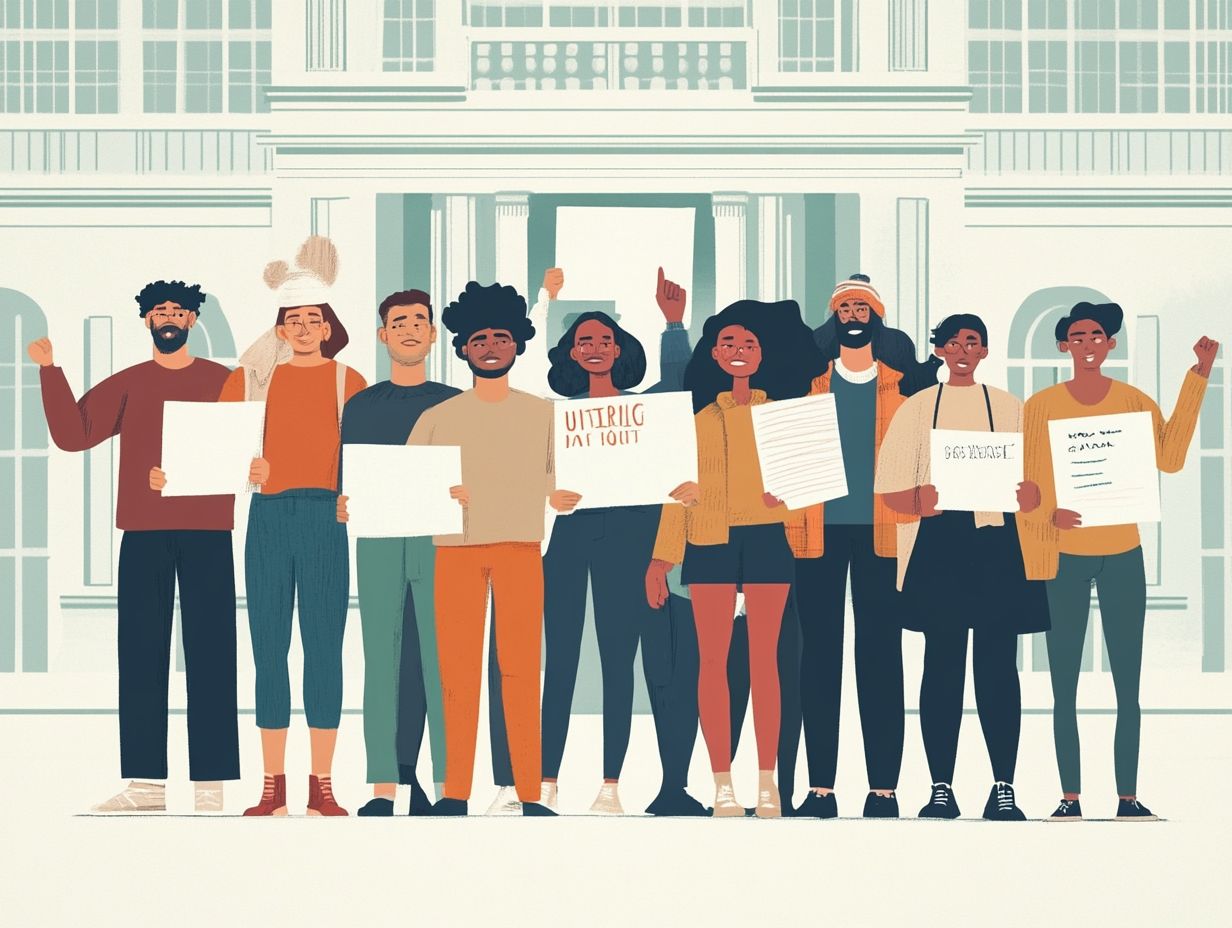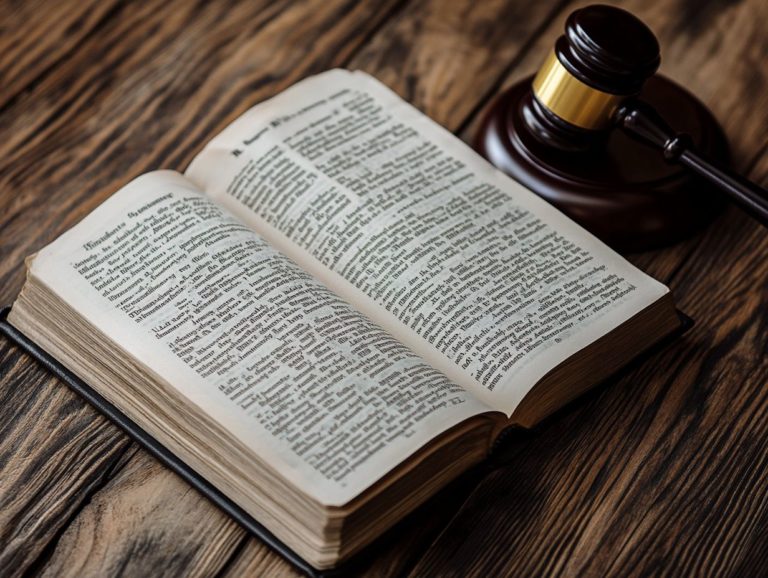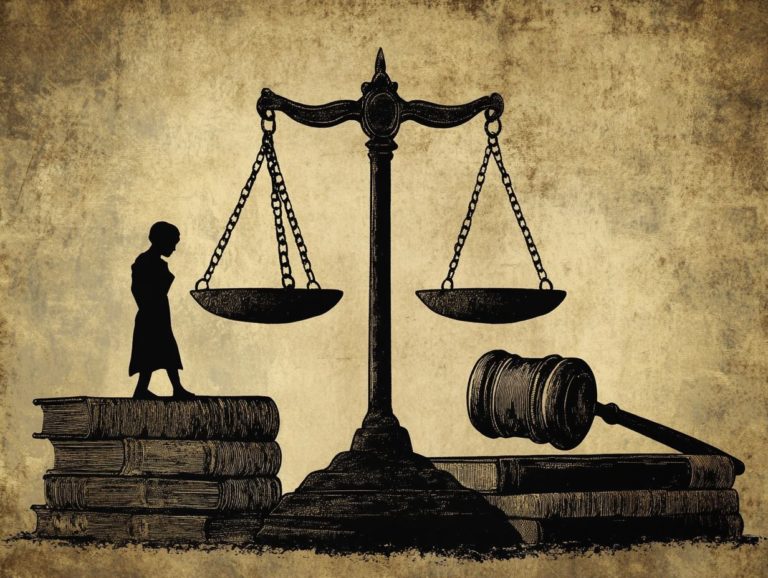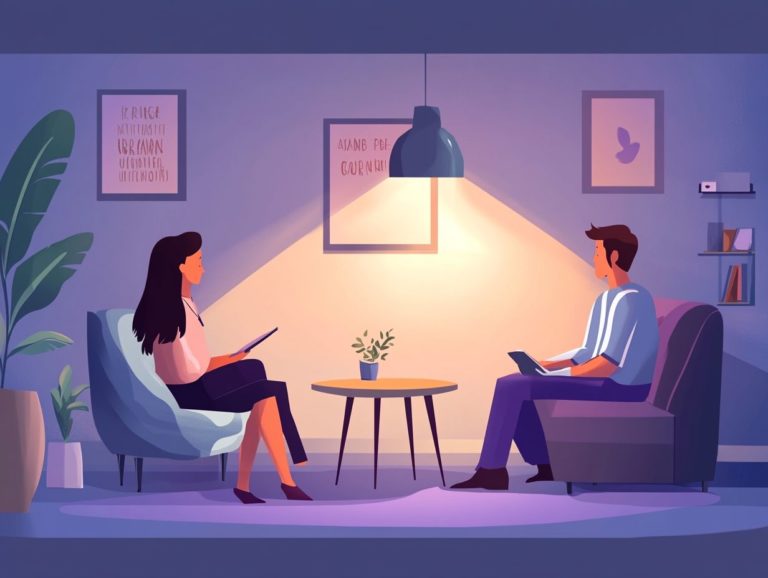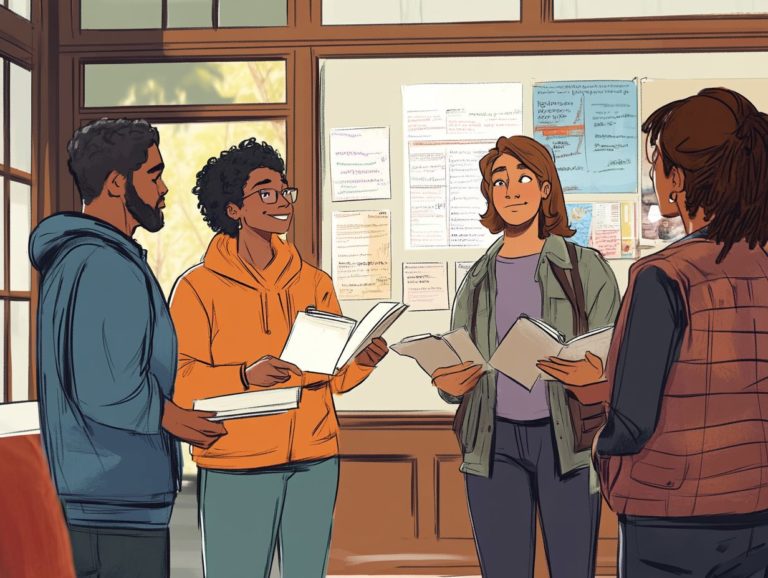What to Do if Your Rights Are Violated
Understanding your rights is essential in today’s landscape. Violations can manifest in numerous ways.
This guide outlines the various types of rights and protections you should be aware of. It empowers you to recognize signs of violations and navigate the necessary steps should they occur.
Learn how to document incidents effectively. Seek legal assistance when needed. With valuable resources and proactive strategies at your disposal, you can protect your rights and advocate for yourself with confidence.
Contents
- Key Takeaways:
- Understanding Your Rights
- Identifying Rights Violations
- Steps to Take if Your Rights are Violated
- Resources for Addressing Rights Violations
- Preventing Rights Violations
- Frequently Asked Questions
- What Steps Should I Take If My Rights Are Violated?
- What Should I Do If I Feel My Rights Have Been Violated?
- Should I Report the Violation to Someone?
- What If I Am Afraid to Report the Violation?
- Can I Seek Legal Action If My Rights Are Violated?
- Is There a Time Limit for Taking Action If My Rights Are Violated?
- What If I Am Not Sure If My Rights Were Violated?
Key Takeaways:
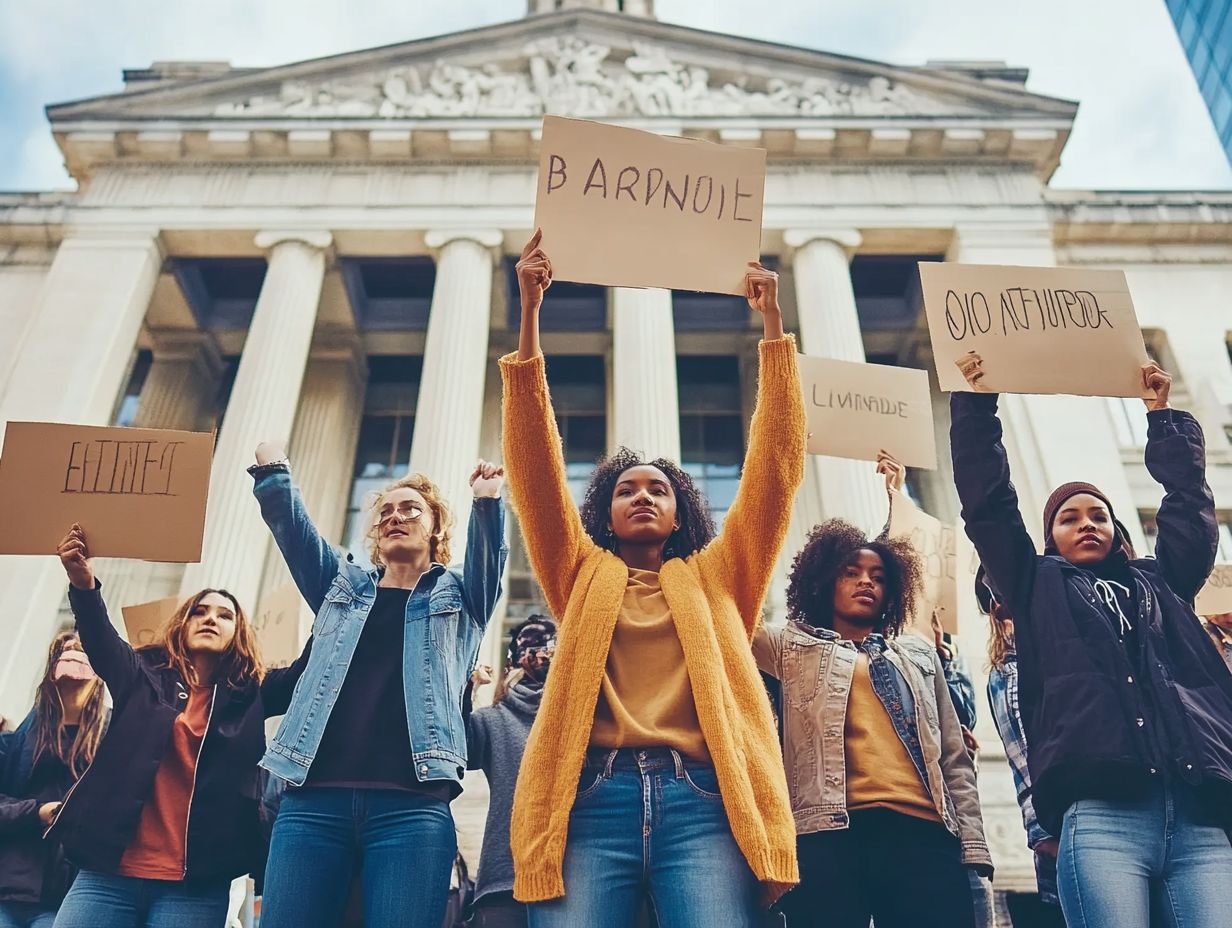
Know your rights and protections to better identify when they are being violated. Take immediate action by documenting the violation and seeking legal assistance. Utilize resources such as organizations and hotlines to address and prevent future rights violations.
Understanding Your Rights
Knowing your rights helps you manage law enforcement and government actions in the U.S. It also aids in social interactions.
The U.S. Constitution lays the groundwork for civil rights. These encompass a variety of protections aimed at preventing discrimination based on factors like race, gender, sexual orientation, and religion.
You, alongside public students and members of the LGBTQ community, benefit from constitutional protections that uphold your freedoms. These protections guarantee equal opportunities in essential areas such as education, health care, and voting rights.
Laws like the Americans with Disabilities Act and provisions related to DACA (Deferred Action for Childhood Arrivals) also play a vital role in safeguarding these rights. They help young immigrants and foster civil liberties for everyone.
Types of Rights and Protections
Discover a wide range of rights and protections in the U.S. that empower you! These rights uphold your dignity and freedom, including civil rights, legal protections, and constitutional safeguards.
Voting rights ensure you have a voice in the democratic process. Educational rights promise equal access to quality education, regardless of your background.
Disability rights affirm your right to participate fully in society. Importantly, these rights are closely linked with anti-discrimination laws aimed at preventing the inequitable treatment of marginalized communities.
Such legal frameworks not only foster awareness but also shield you from discrimination based on race, gender, ability, and other identities. Shedding light on these intersections allows society to better advocate for your rights and ensure equitable protections for all.
Identifying Rights Violations
Recognizing rights violations is key to pursuing justice. This is especially important if public officials or law enforcement compromise your rights.
These violations can include discrimination based on race, gender, or immigration status, as well as instances of police brutality.
By recognizing the signs of these violations, you enable yourself to take the necessary steps toward filing a grievance or complaint. This sets in motion a process for redress.
Being aware of the complaint process and the resources available for assistance is vital. This ensures you can advocate effectively for your rights.
Signs of Rights Violations
Signs of rights violations can manifest in numerous ways. Discriminatory actions, police brutality, and unlawful treatment by law enforcement can instill feelings of helplessness and fear in those affected.
These violations often reveal themselves in various contexts. You might notice both subtle and overt discriminatory remarks from officials remarks that belittle individuals based on their ethnicity or socioeconomic status.
In communal spaces, you may notice the stark impact when authorities treat individuals differently. Targeting certain groups for undue scrutiny is a clear sign.
During public interactions, aggressive behavior from law enforcement such as excessive force during a routine stop can signify the erosion of rights.
Recognizing these signs in everyday encounters is essential for fostering awareness and advocating for justice. It s vital for you to remain vigilant about your treatment and the actions of those wielding power.
Steps to Take if Your Rights are Violated
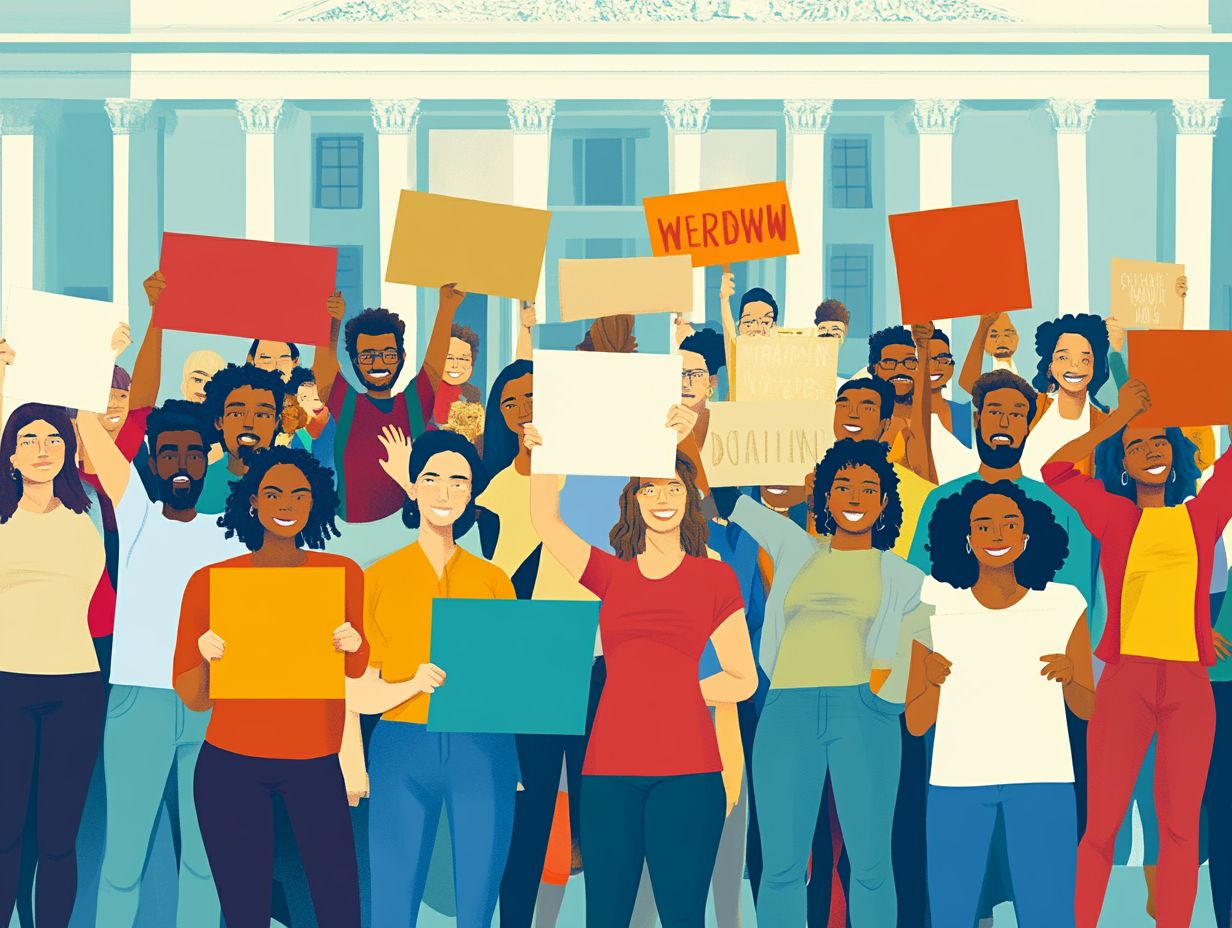
If you suspect that your rights have been infringed, act swiftly. Ensuring your grievances are heard and addressed is crucial.
Start by documenting the violation meticulously. Comprehensive records can enhance your complaint-filing experience.
Consider enlisting a civil rights lawyer. This is a lawyer who specializes in protecting individual freedoms and can offer invaluable guidance throughout the grievance process.
Understand the legal landscape. This knowledge helps you advocate for your rights confidently.
Documenting the Violation
Gather all relevant evidence, including photographs, witness statements, and official reports. This thorough documentation is vital in substantiating your claim.
Collect audio recordings and maintain a detailed journal of events. Note the date, time, and context of each occurrence, along with any interactions with authorities.
By compiling comprehensive evidence, present a coherent narrative that highlights the seriousness of the situation. Emphasize the importance of taking action against rights violations.
Seeking Legal Assistance
Seek legal assistance to ensure your rights are upheld. Finding the right legal support can simplify the journey.
Consult online directories or local bar associations to identify qualified civil rights attorneys. These experts advocate for marginalized groups and guide you through grievance procedures.
When engaging with a civil rights lawyer, expect an initial assessment of your situation and personalized legal advice. They can represent you throughout the grievance process, aimed at securing a fair resolution.
Resources for Addressing Rights Violations
You have many resources to help you fight for your rights. These include organizations, hotlines, and legal assistance dedicated to supporting individuals in their pursuit of justice.
Organizations and Hotlines
Civil rights organizations and hotlines are valuable allies as you navigate the complaint process. They help you understand your rights.
Organizations like the American Civil Liberties Union (ACLU) and the NAACP offer essential guidance for those feeling overwhelmed in their quest for justice.
Hotlines such as the Civil Rights Hotline provide immediate support, helping you articulate grievances and advising you on next steps.
By collaborating with local chapters, these organizations enable you to assert your rights effectively. Their expertise is vital for anyone facing discrimination.
Preventing Rights Violations
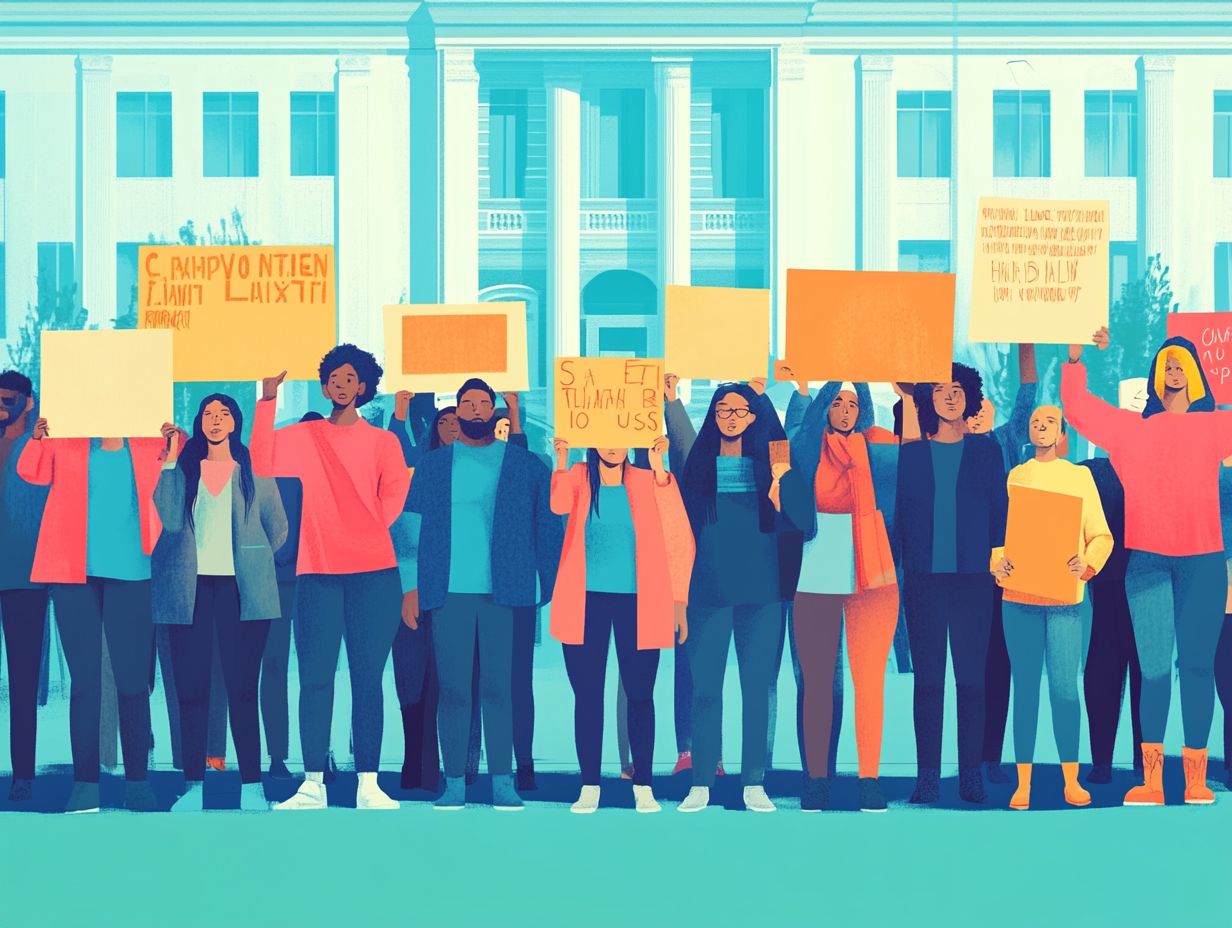
Preventing rights violations requires proactive measures you and your community can undertake. Educating yourselves about your rights and relevant laws is essential.
By being informed, you empower yourself and others to recognize and uphold these rights.
Don’t wait. Start documenting your rights violations today!
Proactive Measures for Protecting Your Rights
Engaging in proactive measures like education, community activism, and awareness initiatives can play an important part in safeguarding individual rights and preventing violations. When you foster an environment where people are informed about their rights, you enable them to advocate for themselves and others.
Participating in workshops, seminars, or local meetings not only deepens your understanding but also strengthens the bonds within your community. By getting involved in local advocacy groups, you can amplify voices that prioritize the defense against rights violations.
These efforts cultivate a culture of vigilance and solidarity, making it increasingly difficult for oppressive actions to take hold. It s vital to recognize our collective responsibility in promoting justice and ensuring that everyone s rights are respected within our community.
Frequently Asked Questions
What Steps Should I Take If My Rights Are Violated?
If you believe your rights have been violated, there are steps you can take to protect yourself and seek justice. Here are some frequently asked questions about what to do if your rights are violated:
What Should I Do If I Feel My Rights Have Been Violated?
If you feel your rights have been violated, the first step is to gather evidence and document the incident. This can include taking pictures, writing down details of what happened, and obtaining any relevant documents or witness statements.
Should I Report the Violation to Someone?
Yes, it is important to report the violation to the appropriate authorities. This can include filing a complaint with your employer, reporting the incident to law enforcement, or seeking assistance from a lawyer or human rights organization.
What If I Am Afraid to Report the Violation?
If you are afraid to report the violation, seek support from a trusted friend or family member. You may also consider reaching out to a local support organization or legal aid clinic for assistance in reporting the violation.
Can I Seek Legal Action If My Rights Are Violated?
Yes, if your rights have been violated, you have the right to pursue legal action against the perpetrator. This can include filing a lawsuit or seeking compensation for damages through a legal process.
Is There a Time Limit for Taking Action If My Rights Are Violated?
Yes, there is often a time limit for taking legal action if your rights are violated. This time limit, known as the statute of limitations, varies depending on the type of violation and the jurisdiction. It is important to consult with a lawyer to determine the applicable time limit for your case.
What If I Am Not Sure If My Rights Were Violated?
If you are unsure if your rights were violated, seek guidance from a legal professional. They can review the details of your situation and advise you on whether your rights were violated and what steps you can take to protect yourself.
Don t hesitate take these steps now to protect your rights!

